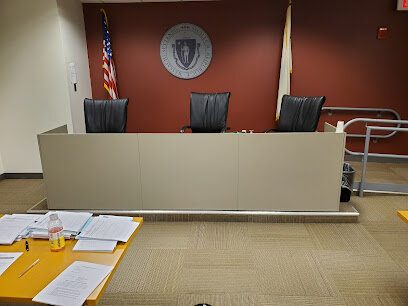Best Speeding & Traffic Ticket Lawyers in Connecticut
Share your needs with us, get contacted by law firms.
Free. Takes 2 min.
Or refine your search by selecting a city:
List of the best lawyers in Connecticut, United States

About Speeding & Traffic Ticket Law in Connecticut, United States
Connecticut's roads and highways are governed by laws aimed at maintaining traffic safety for all drivers, passengers, and pedestrians. Speeding and traffic tickets are common infractions that can result from exceeding posted speed limits or violating other road safety regulations. While some violations may seem minor, the consequences can include fines, points on your driving record, increased insurance premiums, license suspension, or even criminal charges in severe cases. Understanding the laws and your rights is crucial if you are cited for a traffic offense in Connecticut.
Why You May Need a Lawyer
Although some people handle their traffic tickets without legal representation, there are several instances where hiring a lawyer is beneficial. If you face multiple violations, high fines, or potential suspension or revocation of your driver’s license, an attorney can help. Lawyers are especially valuable for out-of-state drivers who cannot appear in person, commercial drivers whose livelihood relies on a clean record, or anyone concerned about the long-term impact of points and penalties. Legal professionals can negotiate with prosecutors, represent you in court, and help minimize or dismiss charges altogether.
Local Laws Overview
Connecticut enforces strict speed limits that vary depending on the type of roadway and area. The general speed limits are 65 mph on rural interstates, 55 mph on urban interstates and other highways, and 25 to 35 mph in most residential and city areas. Speeding is one of the most frequent violations, but other infractions such as running red lights, reckless driving, failing to yield, and distracted driving are also common.
The state uses a point system: traffic violations add points to your driving record, which can impact your license status and insurance rates. Accumulating six points triggers a warning, and at ten points, your license is suspended for 30 days. Points remain on your record for 24 months following the violation date. Connecticut also allows certain violations to be paid online or contested in court, offering defendants an opportunity to present their case.
Frequently Asked Questions
What happens if I ignore a speeding ticket in Connecticut?
Ignoring a ticket can lead to additional fines, license suspension, and even a warrant for your arrest. It is important to respond promptly to avoid further legal trouble.
How many points will a speeding ticket add to my Connecticut driving record?
Speeding violations typically add one to three points, depending on how much over the speed limit you were driving. Higher speeds and reckless behavior can result in more points.
Can I contest a speeding or traffic ticket in Connecticut?
Yes, you have the right to plead not guilty and contest the ticket in court. You may present evidence or testimony to support your case.
Will a speeding ticket affect my insurance in Connecticut?
Yes, most insurance companies check your driving record. Accumulating points or serious violations can lead to increased insurance premiums.
What are some possible defenses against a speeding ticket?
Common defenses include challenging the accuracy of the speed measurement device, questioning the ticketing officer's observations, or proving there was a valid emergency that justified your actions.
Can a lawyer get my ticket dismissed or reduced?
An attorney may be able to negotiate reduced penalties, lesser charges, or obtain a dismissal, especially if there are procedural errors or mitigating circumstances involved.
What is considered reckless driving in Connecticut?
Reckless driving is defined as operating a vehicle at speeds of 85 mph or higher, or driving with disregard for safety. It is a criminal offense, not just an infraction, and carries more severe penalties.
What if I am from out of state and receive a Connecticut speeding ticket?
Connecticut reports traffic offenses to most other states. Failing to address the ticket can lead to license suspension in your home state, depending on reciprocity agreements.
Can I pay my ticket online?
Most Connecticut traffic infractions are payable online. However, some violations require a court appearance, such as reckless driving or if bodily injury was involved.
How long do points stay on my Connecticut driving record?
Points from traffic violations remain on your driver’s record for 24 months after the date of the infraction.
Additional Resources
If you need more information or assistance, consider reaching out to these helpful resources:
- Connecticut Department of Motor Vehicles (DMV) - Provides information on traffic laws, license status, and points.
- Connecticut Judicial Branch - Offers resources on contesting tickets, court locations, and paying fines.
- Connecticut Bar Association - Can connect you with qualified traffic law attorneys.
- Connecticut State Police - Responds to questions regarding enforcement and incident reports.
- Local city and town police departments - Offer advice on local traffic regulations and how to handle citations.
Next Steps
If you have received a speeding or traffic ticket in Connecticut:
- Read your citation carefully for instructions on how to respond and deadlines for payment or contest.
- Decide whether to pay the fine or contest the ticket. If you intend to fight the citation, notify the appropriate court as instructed.
- Consult with a qualified Connecticut traffic attorney if your case is complex, involves serious charges, or you risk significant penalties.
- Gather relevant evidence such as witness statements, dashcam footage, or maintenance records of your vehicle that may aid your defense.
- Stay informed of your court date and prepare accordingly. An attorney can represent you and may be able to attend on your behalf in some cases.
- After your case is resolved, check your driving record for accuracy and consider steps to mitigate any insurance consequences.
Taking action promptly and understanding your rights are key to protecting your driving privileges and minimizing the impact of a Connecticut speeding or traffic ticket.
Lawzana helps you find the best lawyers and law firms in Connecticut through a curated and pre-screened list of qualified legal professionals. Our platform offers rankings and detailed profiles of attorneys and law firms, allowing you to compare based on practice areas, including Speeding & Traffic Ticket, experience, and client feedback.
Each profile includes a description of the firm's areas of practice, client reviews, team members and partners, year of establishment, spoken languages, office locations, contact information, social media presence, and any published articles or resources. Most firms on our platform speak English and are experienced in both local and international legal matters.
Get a quote from top-rated law firms in Connecticut, United States — quickly, securely, and without unnecessary hassle.
Disclaimer:
The information provided on this page is for general informational purposes only and does not constitute legal advice. While we strive to ensure the accuracy and relevance of the content, legal information may change over time, and interpretations of the law can vary. You should always consult with a qualified legal professional for advice specific to your situation.
We disclaim all liability for actions taken or not taken based on the content of this page. If you believe any information is incorrect or outdated, please contact us, and we will review and update it where appropriate.
Browse speeding & traffic ticket law firms by city in Connecticut
Refine your search by selecting a city.









